
Review: Digital Product Factory #2
- On 3. May 2021
Predictive Maintenance for semiconductor production
Condition monitoring and predictive maintenance for ultra-pure water valves
GLOBALFOUNDRIES is a U.S. semiconductor manufacturer with more than 16,000 employees worldwide and over 250 customers in the automotive, manufacturing, computer, wireless and consumer electronics industries.
At the Dresden site of the company, which is considered the largest and most modern semiconductor plant in Europe, microchips are manufactured in a complex process of over 1000 individual work steps. These work steps as well as the entire plant are strictly monitored in order to avoid failures or quality fluctuations. The control valves for ultra-pure water pose a particular challenge. Defects in these valves have so far been unpredictable, which can lead to disruptions in the production process and consequently to high costs.
The Challenge
Our task was to develop a solution approach for continuous monitoring of ultra-pure water valves and predictive maintenance of these valves in a 3-month, methodically guided co-innovation process.
The Solution at a glance
How egde computing and sensor-based monitoring of valves ensure uninterrupted production
TASK
The monitoring of production-critical ultra-pure water valves – previously implemented by on-site staff and a complex analysis process – is to be replaced by a suitable, AI-based sensor solution. The goal is to be able to detect potential failures at an early stage and to better plan maintenance processes.
REALIZATION
Special sensors provide acoustic data that is evaluated directly at the sensor using an AI and machine learning algorithms. The data is forwarded to the cloud and clearly presented in dashboards using the “Cloud Shopfloor Intelligence” platform.
RESULT
Thanks to the scalable edge computing solution, incipient defects are detected early for the first time. Maintenance measures can now be planned effectively. Monitoring of the valves is possible in real time even if the WiFi connection is briefly interrupted and is visualized by means of a clear dashboard.
„
A complete system of hardware and software was created, which vividly solves the problem and forms the basis for future extensions.

Axel Preusse | GF Fellow | GLOBALFOUNDRIES
BENEFITS AT A GLANCE
→ Resilience of the production plants is ensured
→ Time & personnel expenditure in the maintenance process is reduced
→ Data-supported condition monitoring is possible in real time
→ Maintenance processes can be planned in a demand-oriented and cost-efficient way
Deep Dive
The solution in detail
.
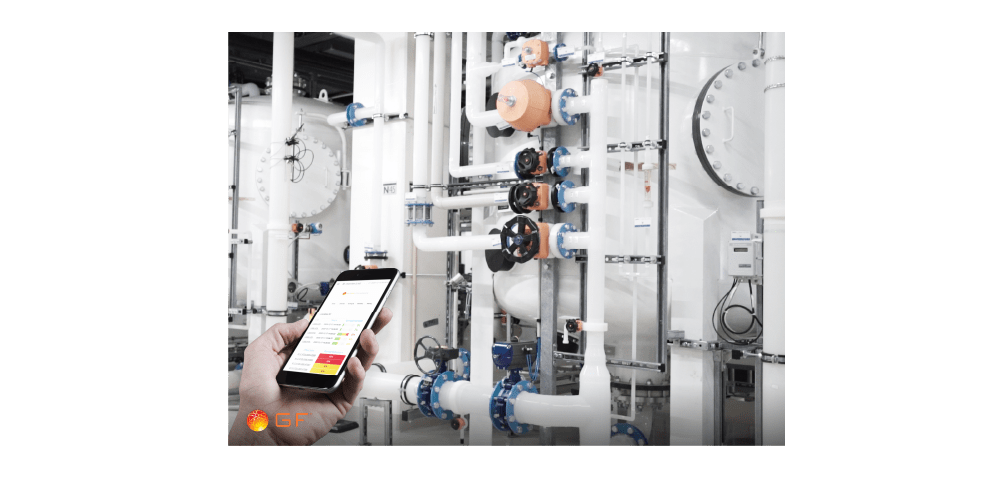
requirement
Predictive maintenance of ultrapure water valves
In the very complex and highly technical production of GLOBALFOUNDRIES, the wafers on which the chips are later manufactured are cleaned of chemical residues in ultrapure water basins. The inflow and outflow to these basins is controlled by valves. Up to now, the valves have had to be checked for damage on site by maintenance personnel. A comprehensive and continuous risk assessment system exists for this purpose, from which a close-meshed maintenance routine, an alarm system in the event of damage, and a complex analysis procedure are derived. Despite all this, defects are difficult to predict, and in the event of damage, production can be severely curtailed, which in turn can result in high costs.
Read more about the challenges in the maintenance process in the interview with Facilities Engineer at Globalfoundries Dresden Michael Wotzka.
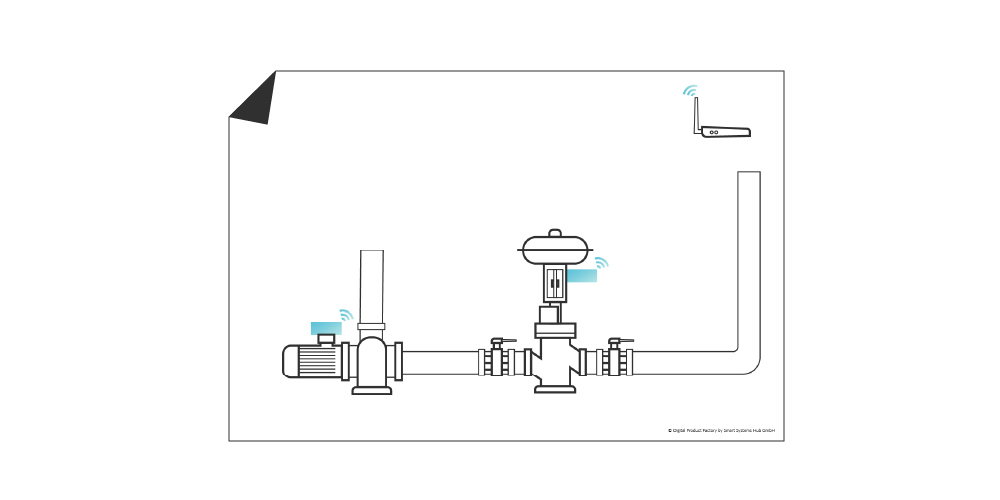
Approach
Edge computing and sensor-based data evaluation
n order to be able to acoustically monitor the condition of the valves directly on site, the highly integrated edge hardware of the sensor technology specialist “Sensry” was used. The data thus obtained was pre-processed by machine learning algorithms developed jointly with “Coderittern”, a Dresden-based IoT startup. The data was transferred to the cloud and clearly presented in dashboards using the “Cloud Shopfloor Intelligence” platform from T-Systems MMS. This means that data on the status of the plants can be accessed in real time and remotely, and can be integrated into further process steps.
The edge solution reduces the amount of data in the cloud and the evaluation also works when there is no Internet access for a short time. This creates a high level of robustness in the system.
This is how it continues: The startup Coderitter turns the solution into a product.
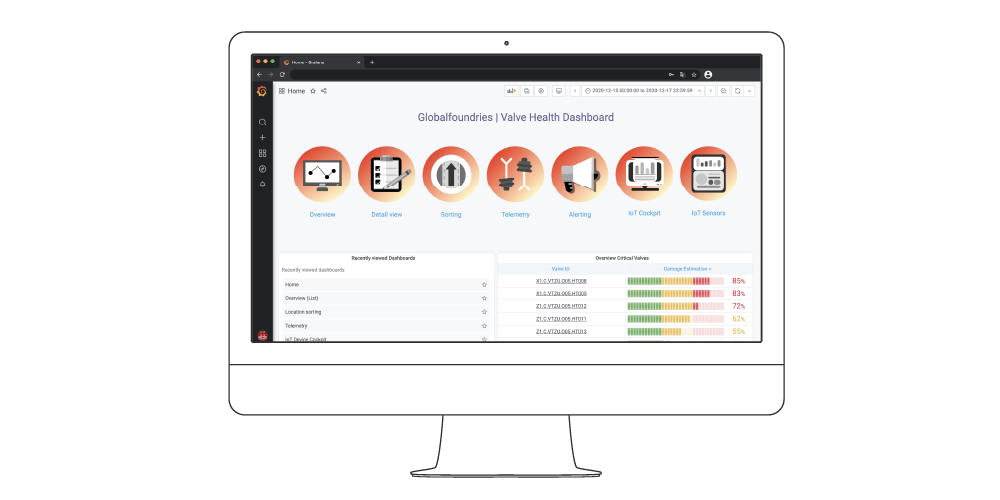
Benefit
Clear visualization and reliable prediction of failures
With the sensor data-based, self-learning IoT solution, the monitoring of ultrapure water valves is carried out digitally and in real time on clear dashboards. Thanks to the developed AI model, statements can be made about the “state of health” of the valve and appropriate measures can be initiated even before the failure or defect occurs. Both component manufacturers or plant engineers and internal teams can now work with identical information. One of the biggest advantages is also that the analysis works independently of the manufacturer and is therefore not an isolated solution.
Overall, the solution is highly flexible, scalable and enables easy integration into other applications and business processes.
This is what partner T-Systems MMS says about the result:
2,2 billion USD*
The global valve control market size is estimated at USD 1.8 billion in 2020 and is expected to reach USD 2.2 billion by 2025. This corresponds to a growth rate (CAGR) of 3.7%
* source: verifiedmarketresearch.com
Co-Innovation in a protected space
The Digital Product Factory:
Concrete results after only 3 months
The Digital Product Factory is a 3-month, moderated co-innovation format in a protected space. With a view to accelerating go-to-market, the goal is to develop a Minimum Viable Product (MVP) or a marketable 80% solution.
In addition to speed, the special feature is the inclusion of relevant partners and forward-looking technologies.
Once again, an individual team of cross-industry experts was put together for this Digital Product Factory #2.
Innovation through cooperation
For the solution, we brought together specialists who combine the core competencies of edge AI & embedded AI, sensor technology, cloud, hardware & software development, UI/UX design and the necessary industry expertise. In addition to challenge owner GLOBALFOUNDRIES, well-known industry partners such as Infineon and T-Systems MMS, startups and students were involved in the development process.
As product owners and method experts, we guided them through the entire innovation process and provided the appropriate [free]space.

The Digital Product Factory has enabled us to bring our Cloud Shopfloor Intelligence solution to market much faster. Especially in the industrial Internet of Things, cross-company collaboration pays off: The combination of experienced specialists and start-ups, a shared customer challenge and a stringent Smart Systems Hub methodology is unbeatable for IoT innovations!
Christoph Kögler | Head of IoT & Cloud Solutions | T-Systems Multimedia Solutions GmbH

It is always impressive to see how large industrial partners, startups and medium-sized companies can achieve measurable results in the [free]space we have created in a trusting and goal-oriented manner in just three months. The fact that after Digital Product Factory #2 all project partners are now continuing to work with the Smart Maintenance MVP makes me particularly proud.
Michael Kaiser | CEO | Smart Systems Hub

The agile project management approach of the Digital Product Factory is geared towards creating a physically tangible solution for a concrete problem within the shortest possible time. Building a “real” demonstrator, even if not yet perfect, has a much higher solution quality than any simulation, no matter how perfect.
Alexander Kirstan | SR Sect MGR Facilities | GLOBALFOUNDRIES

The Digital Product Factory is the ideal test bed for demonstrating the performance of our hardware solutions in a defined scenario. I am impressed by the fast implementation and the organization of the project by the Smart Systems Hub.
Mario Grafe | Engineering Manager Hardware/Software | Sensry GmbH

We were able to take on a technically highly demanding challenge in the Digital Product Factory, using technologies that in some cases have not yet been introduced to the market. We have established important business relationships, are currently entering our first round of financing, and are further developing the solution into a first, proprietary product.
René Gastmeier | CEO | Coderitter GmbH

My internship experience in DPF was interesting and enlightening. Although the pandemic hit and the physical meeting had to change to online, everything still went as planned and I definitely gained more experience in conducting research and presenting my results to others. The working environment in DPF was also great. There is always someone that cares about your work and people are always ready to help each other, which encourages learning and growth.
Jingyan Xiedu | student at TU Dresden | SW-Developer, Focus: AI
Public presentation of results
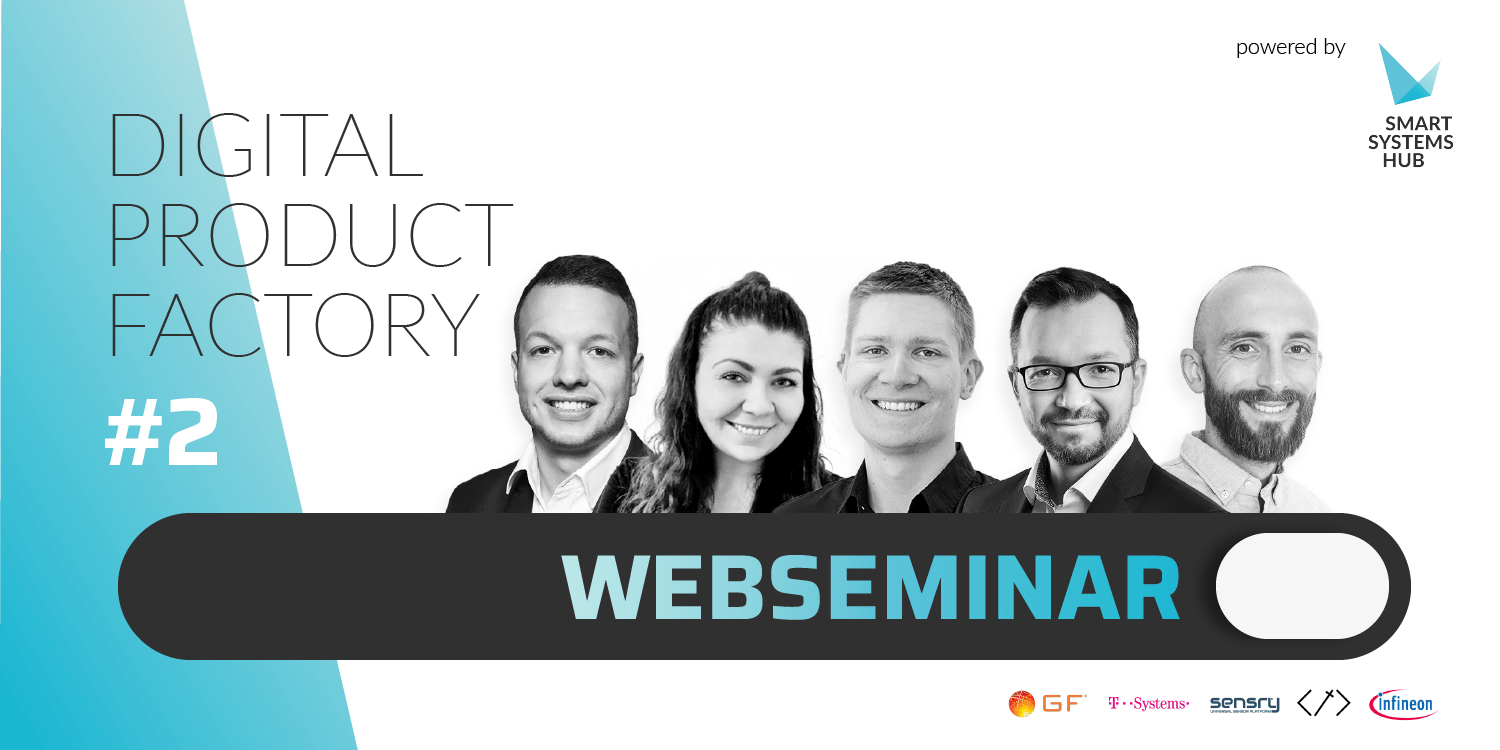
How edge computing enables predictive maintenance of valves
Web seminar and Q&A on the results of the 2nd Digital Product Factory
Shaping the future
Your quick start with the Smart Systems Hub

Hans Klingstedt
Business Development & Co-InnovationYou also want to have an IoT solution developed by our expert teams?
I am here for you and will also find the right approach for your challenge.
Your news in our blog
We are always looking for interesting content from the areas of (I)IoT, AI, software, hardware and connectivity as well as the IoT user industries. We are always happy to publish your guest post on our blog.

Hanna Hübner
Design & CommunicationContact me!
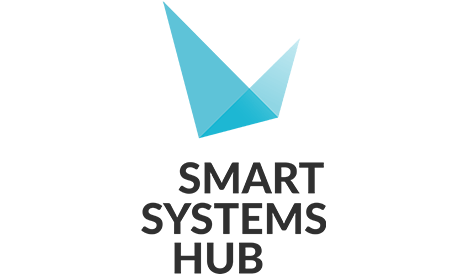



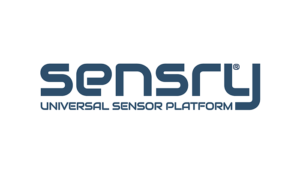

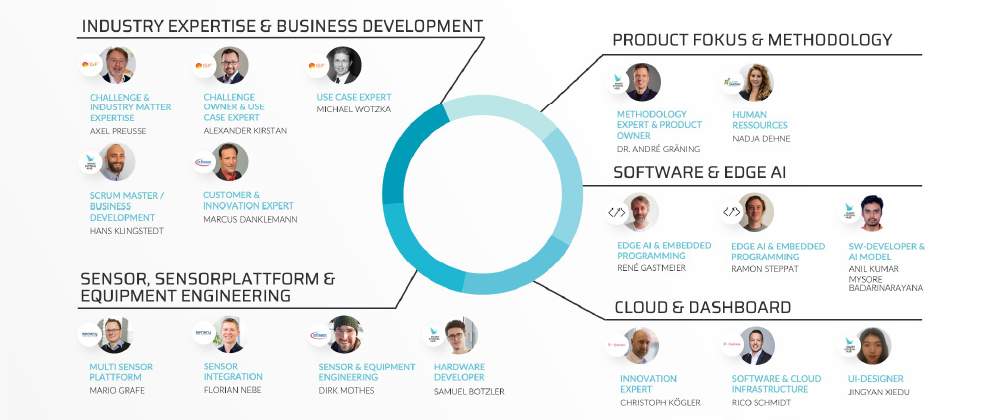
0 comments on Review: Digital Product Factory #2